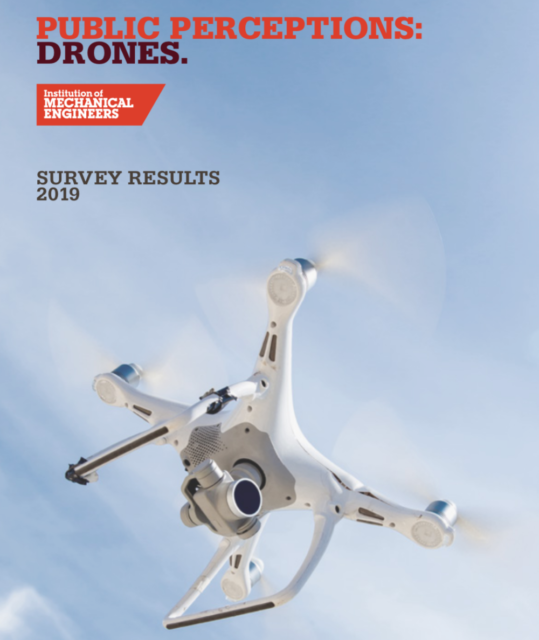A new IMechE poll has found that only 23% of adults support drone deliveries. Highlighted in a report titled Public Perceptions: Drones, the potentially surprising low level of support comes from concerns including package theft and accidents.
Media coverage of incidents involving unmanned aerial vehicles (UAVs) also probably played a part, said IMechE head of engineering Dr Jenifer Baxter to Professional Engineering.
“One of the things we have seen over the last year is a fair amount of negative press over the use of drones around airports, the sorts of cases where drones are used inappropriately… that can sit in the back of your head,” she said.
Noise pollution could also become a bigger issue as the technology becomes widespread, she added.
“If you live in a national park, or the Scottish Highlands, a drone could be a really good option – but that could bring noise pollution to an area that didn’t have it before.”
The report highlights the need for regulations to be sorted out, said Dr Baxter. Companies, regulators and the public also need a better understanding of how the flying machines could integrate with existing transportation methods on the ground.
Amazon trialled the use of drones to deliver goods in the UK in 2016, and in June it said it would use drones for deliveries “within months”. Uber is testing food delivery by drone in San Diego, and many more companies are likely to explore the method as the technology matures.
They are likely to face “considerable opposition” from the public despite potential benefits, according to the IMechE. Only 18% of people aged 65-74 would be happy to receive a drone delivery, because of concerns about invasion of privacy and accidents in the sky. 25-34-year-olds were the most enthusiastic, with roughly 48% in support.
Of the 2010 adults surveyed, 45% said the top concern is people stealing packages. 39% were worried about dropped deliveries causing accidents, while 30% mentioned damage to delivered items.
“Deliveries by drone could potentially reduce traffic congestion and cut emissions from fossil-fuelled delivery vans but it’s clear many people are worried about their impact on their neighbourhoods,” said IMechE chief executive Dr Colin Brown. “The government needs to consult to address these concerns, so people have confidence in the use of drone technology.”
Drones could be suitable in traffic-congested cities, but range limitations means long-distance deliveries are not yet practical. They could nonetheless be suited for a wide range of other applications. 75% of people said they supported the use of drones for emergency services response, such as search-and-rescue and the delivery of urgent medical supplies.
“There are areas where drones are going to dominate the market,” said Dr Baxter. “They will be used for things like maintenance in areas that are traditionally very unsafe for people – at heights, out at sea, surveillance for the military, things like that. I think we are very likely to see more drones in disaster relief, delivering food or looking for people who are potentially lost after a natural disaster. There are a lot of uses for drones that are very positive.”
The poll also found that only 35% of respondents were aware of Civil Aviation Authority regulations governing the use of drones.
The IMechE made the following recommendations in its new report:
- The drone-using community, companies and the Government need to work together to develop a public awareness campaign to increase the understanding of drone regulation and oversight. In order for the public to trust drones, it is essential people understand them and know about their advantages and limits. The public need to be more aware of the existing rules in place that govern them and who oversees the implementation of these rules
- The Government should consult on new regulations on drone deliveries, in particular addressing the concerns about the wider community impact of deliveries to people’s homes. There are specific concerns around preventing accidents in the sky, having too many drones flying in a neighbourhood and the potential impact on personal privacy.
To download the complete report click here
Source: Institution of Mechanical Engineers

